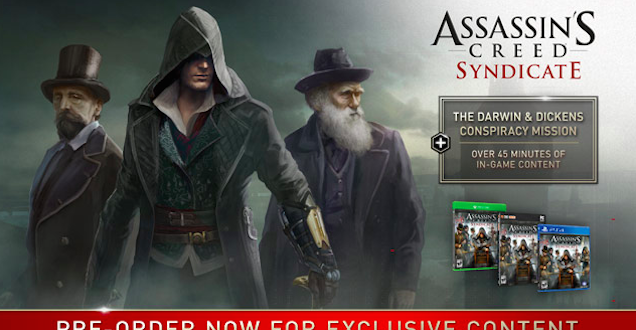In recent years, there has been much heated debate over the use (or overuse) of preorders and preorder bonuses in the triple-A games market. One example of this is the 2014 release of Halo: the Master Chief Collection. Within a single day of the its announcement at E3 2014, the game was already at the top of Amazon’s video game sales chart. Obviously hype for the November game was through the roof. But how did that translate to the game’s actual quality? Well, if you’ve kept up with any news about the long awaited title, it didn’t have the best release of all time (to put it lightly). Similar stories can be seen with other high-budget and high-hype games such as Battlefield 4, and Assassin’s Creed: Unity. I’m not saying that these games are bad, or that they aren’t worth buying. I’m simply stating the facts; they were high budget games that offered bonuses for preordering, that had many game-breaking issues at launch.
So what exactly caused this rush of preordering games in the first place? When did it go from only a thing for the nerd elite, to something that was extremely common? Well, I’ve traced it back to at least 2004, when Bungie’s Halo 2 had an extremely hyped and extravagant pre-release party at that year’s E3. It featured celebrity guests, copies of the game to be demoed, and a home converted to mimic one that would be seen in the Halo universe. Other release parties had guests with Halo 2’s logo tattooed on their arms, and other such displays of excitement. “But Halo 2 was extremely successful!” you may cry. “How can we compare a well received working game to the one released last year?” Well, we have to find the root of the issue. And the hype generated by Halo 2’s release might just have been a spark to the hype powder keg.
Possibly, other games wanted to imitate this massive success, realizing that generating excitement for a game well before release would exponentially raise their sales numbers. So, they would offer small incentives to preordering their games. This may have started with something as simple as a unique skin for a character or weapon. Then it evolved into special editions of games with additional content, or entire DLC sets. Now, it’s a mix of both. But, this comes with its own slew of problems. As evidenced by Battlefield 4, Assassin’s Creed: Unity, and Halo: the Master Chief Collection, these preorder incentives will often cause publishers to release only mostly-finished or still very broken games into the public for full price; as to avoid the backlash of a delay. Is it killing the industry? I doubt it. But is it helping anything? Absolutely not. However, maybe after the recent disappointments, you’ll reconsider next time you’re tempted to buy a game before it’s even out. What do you think? Tell me in the comments!
 Load the Game Video Games, Reviews, Game News, Game Reviews & Game Video Trailers
Load the Game Video Games, Reviews, Game News, Game Reviews & Game Video Trailers



